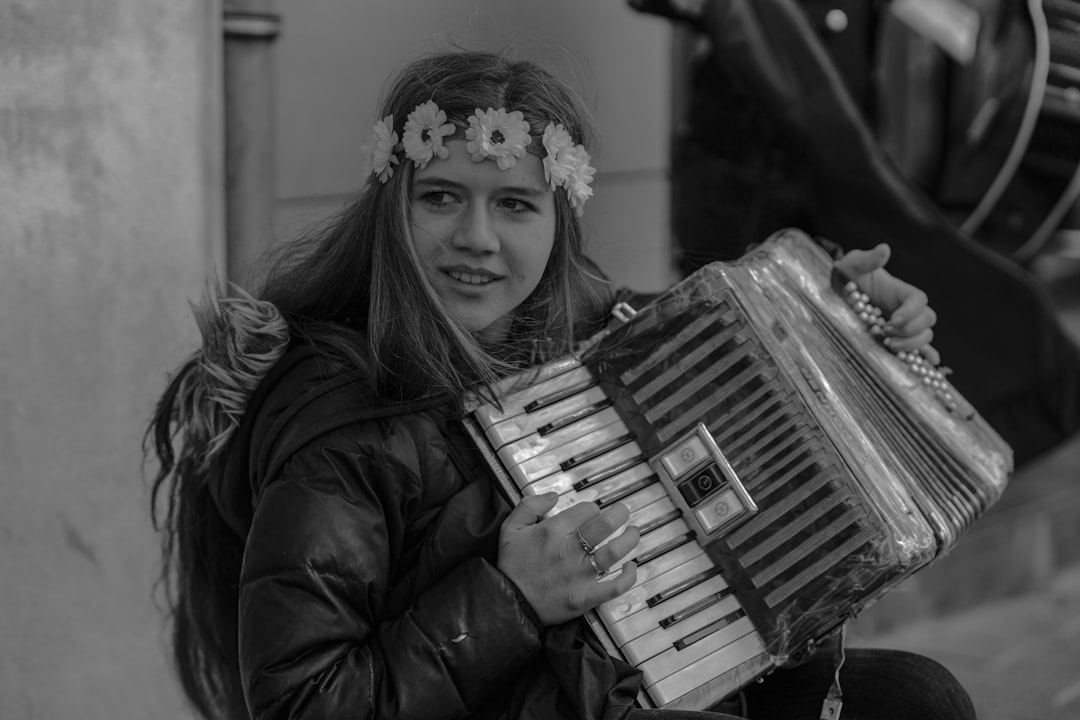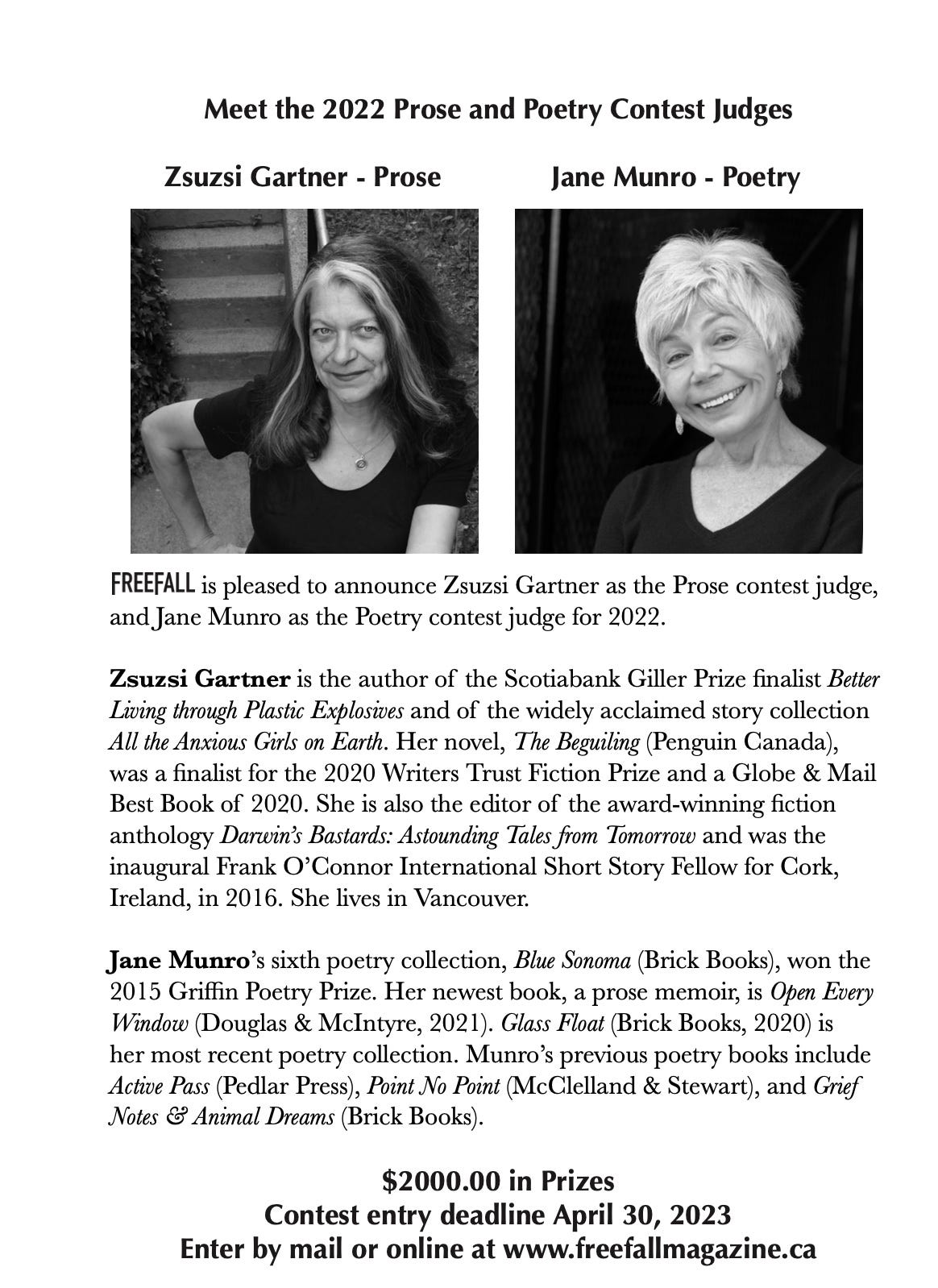March 1 Newsletter - the potpourri
Prompt and poll; thoughts on essay writing and the nature of fiction; a market

March
A noun, a verb, a month. In like a lion. Out like a lamb.
These “first of the month” newsletters—with their potpourri quality—will always be for all subscribers, free and paid, along with the prompt thread, in which anyone can post, and receive some response and feedback.
(Remember to click on the title of this post to read on the site, and not just as an email.)
I tried to find a photo with “march,” and there was too much anger in what Unsplash pics had to offer… especially after me posting about the artists’-grant system! Enough frustration already.
Then this turned up. A little music, a little whimsy, a photo that has story and poetry to it. When you’re having a not-good writing day, do you ever trip through photographs? Like perusing the pages of a name-book, it’s almost impossible not to have ideas running amok in your mind when you spend such time.
The image, the instrument, the music… might even work for you with the prompt. Check out below.
Thanks for being here!
~~~
PROMPT
A chapter title in Dinner at the Homesick Restaurant, by Anne Tyler. (Why does my mind always go to “Homesick Cafe” instead? What is the rhythm of two and three-syllable words? But you can’t have family dinners at a “cafe”… or can you? When meaning is more important than sound.) I digress…
Tyler says this novel is her personal favourite of her works.
The chapter title sets my mind moving:
Use the title here—“This Really Happened”—to kick-start a scene, story, or poem.
To consider: does it need the word “really”? What happens if you play a bit with these words? Feel free to do so, but ask of yourself: what is the “really” about? Is there some edge of “unbelievable”? Does it take you to hyperbole? A tall tale?
If there’s one thing that irritates readers, it’s “nothing happens in this!” So make it “happen.” REALLY.
And post in the prompt thread.
Max word count 500—which would make it flash fiction by some standards.
~~~
Nonfiction - writing the essay
I’m including a couple of quotes from an interview with Stephen Marche about his new book, On Writing and Failure, in Tara Henley’s Substack. I’ll share the link to the interview, to credit and say “thank you.” Note that the words in bold are my emphasis:
As I said, my definition of a good essay is one where you learned that you’re mistaken. Because that’s what life is. You have assumptions, and then they’re stripped away, and you realize that you didn’t know what you were talking about, and you learn something. And then you are changed by learning about something in the world.
~~~ Stephen Marche
from—
What I love about writing is the feeling of learning. To me, the kind of writing that I really like is the one where you’re learning along with the writer at the same time. That he or she begins in error, and with an assumption. Then you see that assumption collapse … I think an essay really should be a try. Those are the ones that I really like, the attempts.
~~~ Stephen Marche
In these quotes he appears to be conflating reading and writing. Fair enough. It causes me to think about these two sides of the same thing: written word.
Both reader and writer begins with something in mind. And then have “assumptions collapse.” As writer, this is often when we toss a project. Or we start over. Or we can make the decision to allow the reader to see the collapsing, the attempts to put-together-again by King’s horses and men… even with all our pieces at the bottom of the wall we were sitting on.
Really, this demands of you that you set aside preconceived ideas (including “where can I sell this?”) and get on with the labour of discovery.
Do you learn from your nonfiction work? Are you taken by surprise, taken some other place from the one you started at? What are your discoveries?
~~~
Market
~~~
Worth a read
Interview with Jennifer Egan about her latest…
“In many ways, The Candy House is a love letter to fiction, which she believes can provide the most authentic insight into the human condition.”
And share further thoughts about this—about why you think one of the three is superior in speaking to Truth or truths of the “human condition.”
(Does this connect for you in any with with the above piece about discovery and assumptions in essay writing—is it so different in writing fiction?)
~~~
Thoughts on the February poll
That poll was a question about ritual in your writing practice. And equal number of you said “always” and “never,” with a smaller number saying “sometimes.” In other words… extraordinarily inconclusive! No one seemed to be including the NEED for coffee as “ritual.” For me, it is.
~~~
Re-cap of February posts
The usual potpourri, first of the month post, with a prompt of “juxtaposition” and a Sontag quote about “re-mystifying.”
A number of you posted in the juxtaposition prompt thread—always good to see. Poems, pieces, phrases. If you missed, or intended to post, take a look, and add yours.
The February Poetry Discussion thread is here. If anyone has a recipe that goes with that soup photo, please share—for Tara and for all. (Outside, right now, is a whole lot of snow, and it’s still coming down—definitely soup weather.)
I had to write a piece about “writers’ grants” and living and dealing with that reality. And then had to return for a re-read of the piece on taking pleasure in one’s own work. I wrote and posted that on my father’s birthday, early in the month, but the thought is timeless—we do need to pause frequently with this. The grant piece was a reminder: always this going backwards and forwards in creating.
Which brings me to the pieces on Character Goals, and the secondary piece connected to, about the movement and pacing of working towards goals.
(*DO check out this second half if you missed—I think it went a bit under the radar. But the mapping-out piece can be useful.)
~~~
I am missing your questions!
It’s been some time since I wrote in answer to some of your words. Do ask. It’s always good to know what’s on your mind, about writing, publishing, process.
Post as a comment or email at alison@alisonacheson.com.
~~~
Workshops
Send along any scene/story, picturebook, or poem you’d like me to post in the workshop space. To: alison@alisonacheson.com
Tara posted a poem—a glosa—in the poetry workshop. The form of glosa is described in the poetry discussion thread.
~~~
From the Archives
Given my posts on grants and taking pleasure in our work—two seemingly at odds posts—let’s review The Gift, a book that should be on all our shelves.
Peace—
Alison







Poetry condenses the experience which allows the reader to understand the emotional impact. The reader can appreciate the intensity of the words without being pulled in. When poetry is set to music all bets are off.
What a generous offering in this March 1 newsletter, Alison! Thank you for every bit of it.
It’s sad that Poetry has zero votes in your poll. No question it distills truth better than any other literary form. But having acknowledged that, I voted for Fiction because my experience as a journalist taught me the limitations of Nonfiction.
Facts are not the Truth said Matisse. And I turned to Fiction after several years in print and broadcast journalism for that very reason. No matter how thorough my coverage of any story, I always felt there was more to tell, more to say than the facts could communicate.
Thanks for giving us so much to think about today. Love the Photo!!